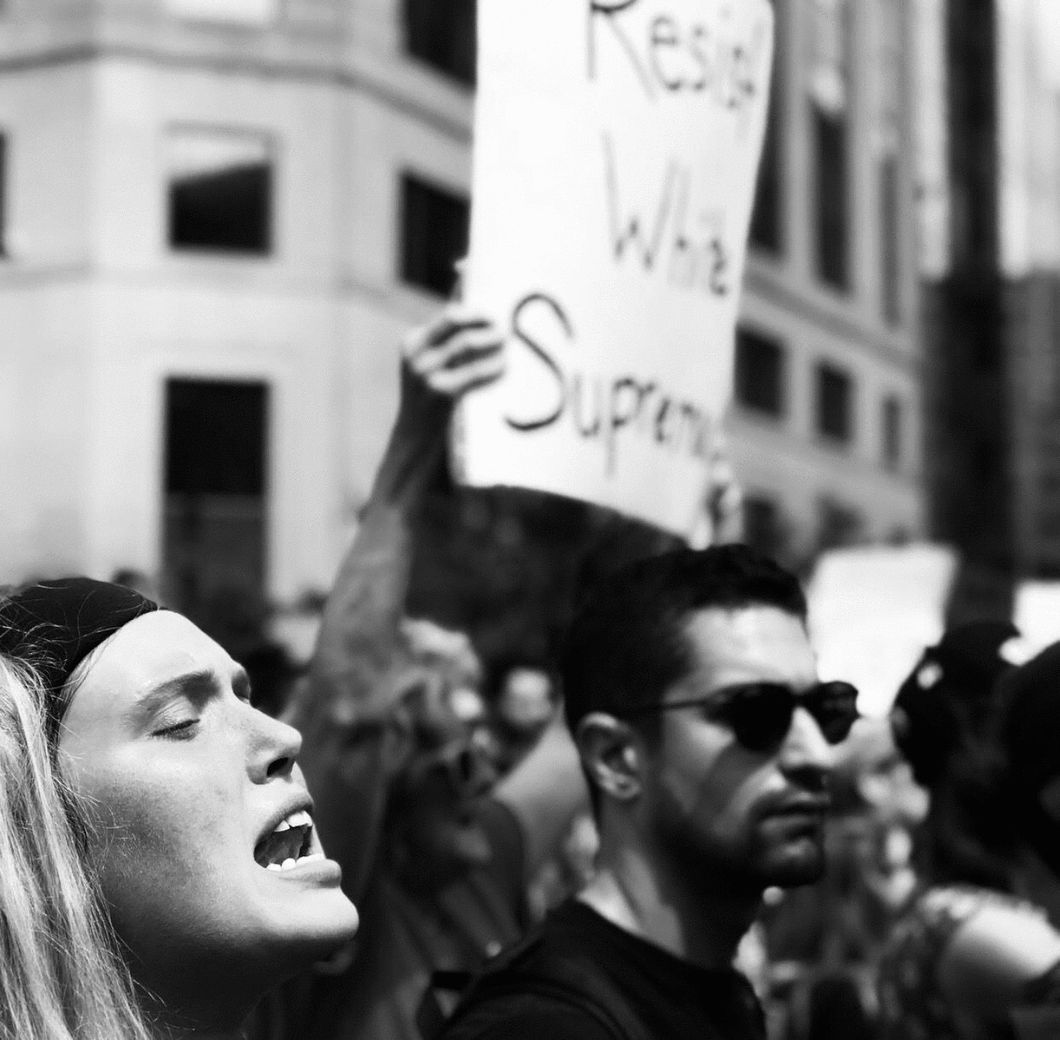We're all guilty of it.
Scrolling through social media, seeing a troubling video or news story, and swiping away as if you hadn't seen it, to begin with. Flipping past the news channel because "there's never anything good" going on in the world, only crisis and tragedy. Rerouting your commute when protesters march through the streets, making their voices heard.
We see these occurrences as nuisances, as deliberate things meant to make our days worse. We'd rather live in a bubble of oblivion than take the time to learn about the things going on around us, and that's the sad reality. So many people choose to live in ignorance, and then wonder why things appear so bleak.
But why do they choose to live in ignorance? The answer is simple: desensitization.
The Oxford Dictionary describes desensitization as the act of "[making] (someone) less likely to feel shock or distress at scenes of cruelty or suffering by overexposure to such images." It's why we scroll past those videos of police brutality or famine victims, why watching the news angers us rather than settles our nerves, why alerts of school shootings no longer surprise us. It's sad. It's a natural human response, but it is damaging in more ways than one.
Frankly, allowing oneself to become desensitized inherently allows those distressing events to continue and get worse, without repercussions. In the day and age we live in, where technology and social media play active roles in our everyday lives, we can always see what anyone posts, regardless of where on Earth they live. This means that when people take to social media because of this feature, they do so with a purpose. The people of Sudan, for instance, are suffering from violent massacres in the midst of a media blackout, and in order to get help from powers who are able to help, they are documenting their experiences on Twitter and Instagram.
Once their story gains the momentum guaranteed by social media, it also gains the eyes of the world.
Who are we to ignore real crises around the world? We hide behind our cookie-cutter lives in privileged nations or the maxims of whichever faith we choose to believe. We believe we are helpless when it comes to making a change, yet no one does a thing to actually bring it about. We are more likely to react to the minutiae of celebrity drama or the events of our favorite TV shows than the harsh realities of the world.
There are always ways to help, on whichever scale one needs. Get involved in organizations at your school or in your area. Protest for causes that fall in line with your morals. Donate to programs devoted to sending aid or funding research. Let your government representatives know what you want them to focus on. Become a representative yourself. Speak up against violence, against discrimination, against that which is immoral and unjust. You don't need to be directly involved in these international crises to truly begin to make a difference.
The world may be a dark place at times, but those who exist in the few spots of light cannot turn away from it in fear of going blind.
Because when they do, those suffering from dark times will only continue to do so, longing for aid. The families along the border will continue to remain incarcerated. People of color will continue to face brutality at the hands of those supposed to protect them. Schoolchildren will continue to be slaughtered in their schools. The environment will continue to become inhabitable. The Earth will be full of humans, as Jason Donahue once said, but no humanity.











